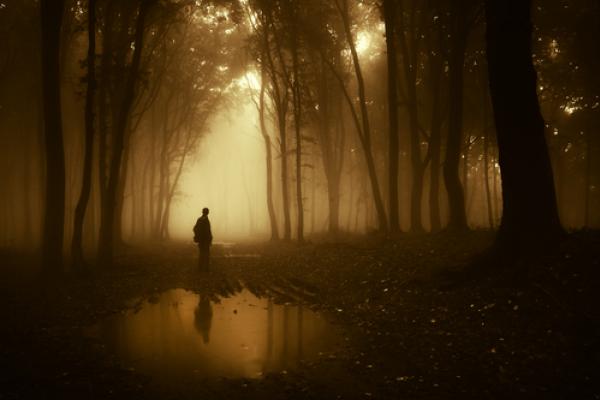Wise leaders spend time in the wilderness.
Some choose a sojourn in the desert; most are driven there when their leadership fails.
In the desert, beyond their cocoon of comfort and success, they see more about themselves. If they stay in the desert long enough, they come to understand what they see about themselves. Stay still longer, and some even come to appreciate themselves.
And a few whose desert wanderings go past endurance stop focusing on themselves at all. They discover people and God. Those become the great leaders. They move far beyond self-serving, calculation, manipulation, cleverness, methods, and successful habits. They find common ground with humanity in its brokenness and aspirations, in its resilience and its daily acts of common goodness.
We live in an era of weak and absent leadership. Bullies run amok, swaggering, posturing, threatening. Self-serving leaders maneuver for gain and promulgate reward systems that have little to do with accomplishment. Weak leaders tend to be risk-averse, avoiding conflict, blaming others, making small adjustments that merely kick the proverbial can down the road.
Lazy leaders cling to the Plan A that got them there, even as changing circumstances require a Plan B. Frightened leaders surround themselves with the weak and compliant.
Then comes the desert. In the desert, bullies lose their power to intimidate. The self-serving get caught. Consequences of laziness and delusion mount. Excuses and entitlements no longer work.
In facing consequences, the mirror loses its fog. We see ourselves as we have become and as we are, and we shudder in shame and remorse.
At that point, most drift off to places where no one knows them. A few allow themselves to be led across the river and into the wilderness. There they abandon the illusion of escape and become hungry for self-awareness, for reality awareness, and for God awareness. They stop the most pernicious form of lying: lying to themselves.
At some point, they return to a world that hasn’t learned to value failure, where scanning software automatically discards resumes “with holes” and records with “black marks.”
And so they create their own enterprises. They start their own churches. They seek out other desert learners and take the risk of developing new products. Made fearless by facing their once-paralyzing fears, they tackle mission projects, take on corrupt governments, speak truth to power, and lead forward to new lands of God’s choosing, not backward to safe places and Mammon’s reign.
Those few leaders change the world. They don’t enslave it or profit mightily from it; they make it better.
Some return from the desert to lead on a large stage, like Steve Jobs building a great enterprise in Apple, or Abraham Lincoln saving a nation from itself. Some start new ventures — check the sketchy resumes of those making a difference in technology. They push through failure to invent new solutions.
Many lead on smaller stages. They become effective parents, better spouses, servants of the downtrodden, bold church leaders. Having been formed in the wilderness, they don’t protect their children from failure or punish failure in their churches or workplaces. They lead others to sobriety. They stand with the faltering when wolves attack.
Our society has too many weak leaders in positions of power. We need more men and women who have been formed in the wilderness, not the cocktail circuit.
Tom Ehrich is a writer, church consultant and Episcopal priest based in New York. He is the author of “Just Wondering, Jesus” and founder of the Church Wellness Project. His website iswww.morningwalkmedia.com. Follow Tom on Twitter @tomehrich. Via RNS.
Photo: andreiuc88 / Shutterstock.com
Got something to say about what you're reading? We value your feedback!
